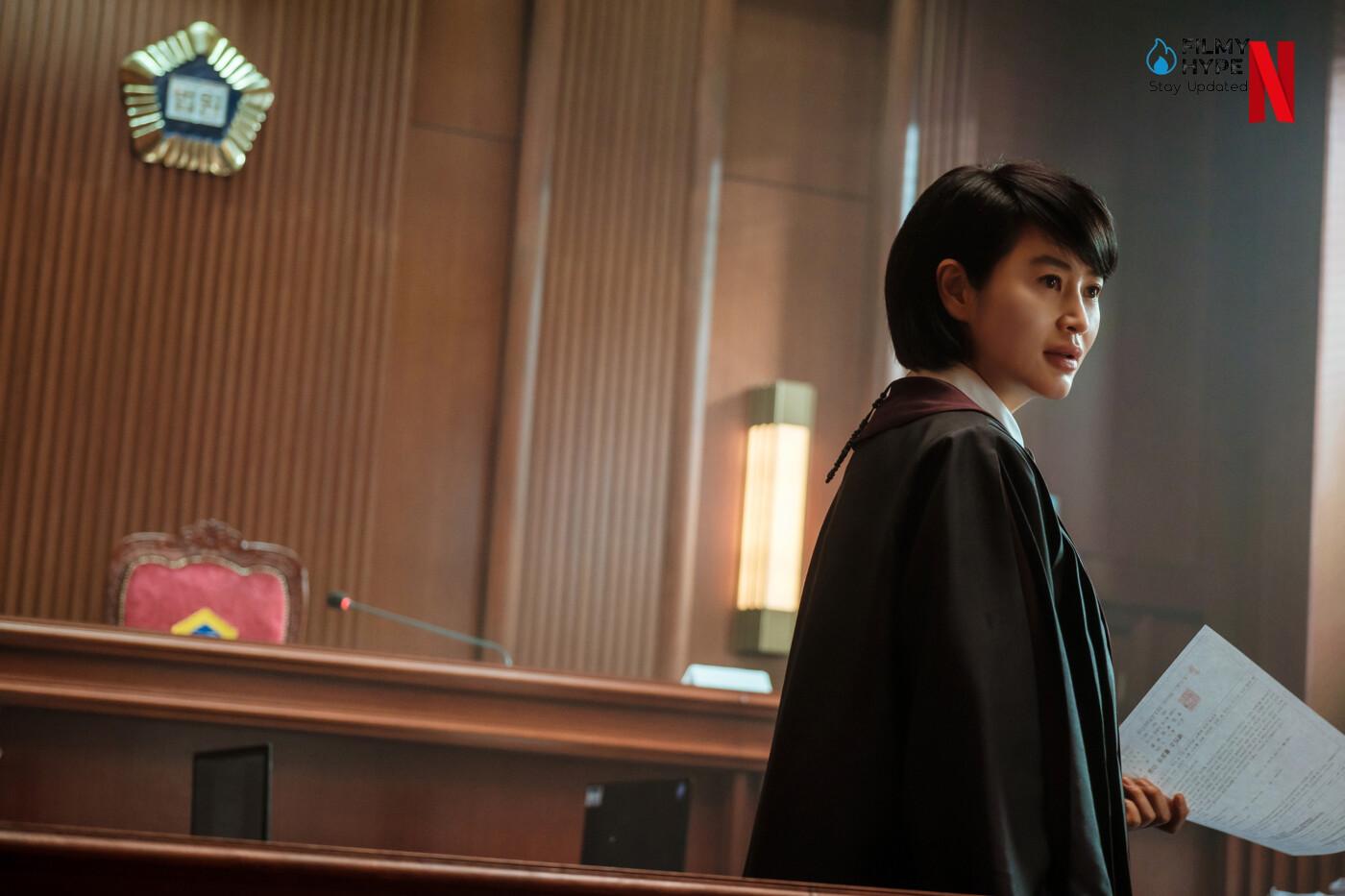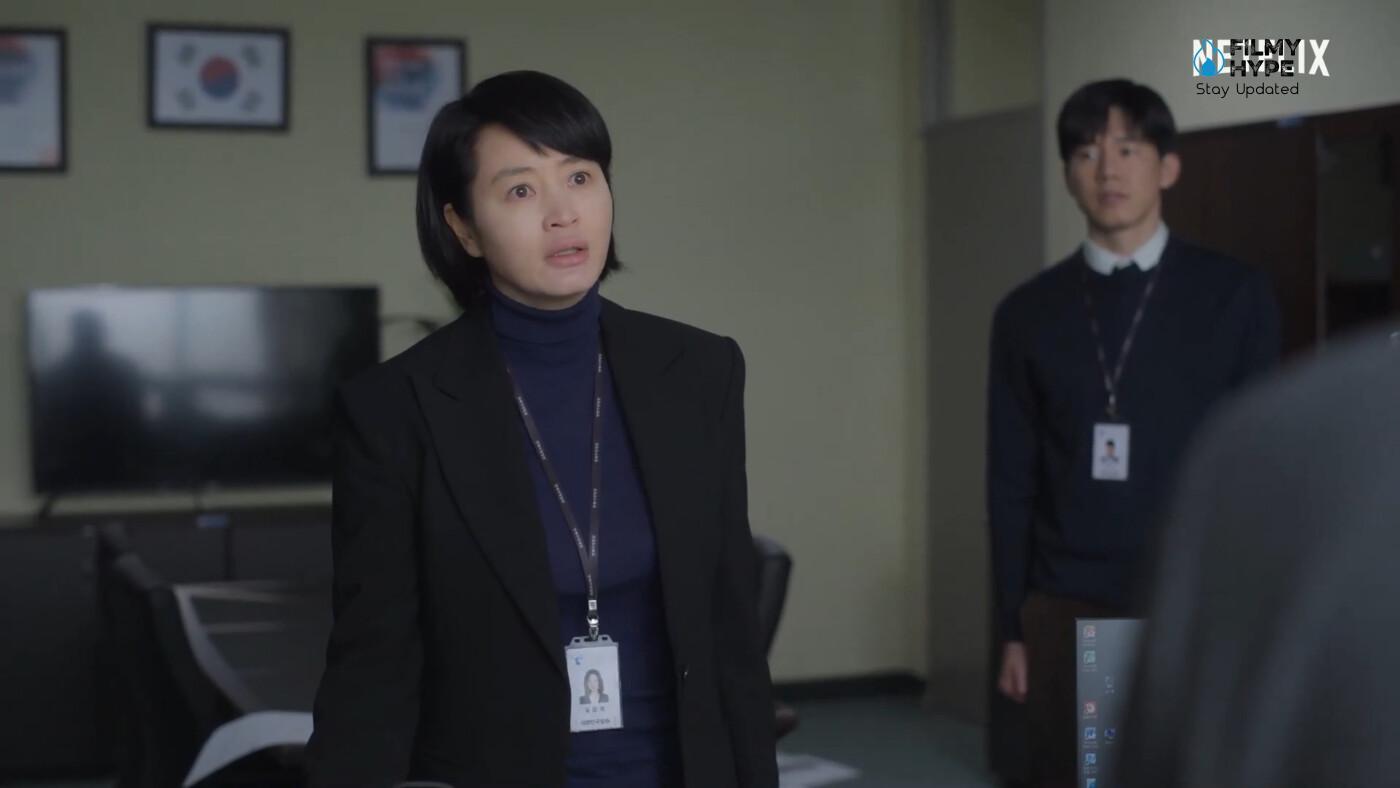Juvenile Justice Review: Korean Drama That Explores Important Issues Concerning Juvenile Delinquency And Social Responsibility
Director: Hong Jong-chan
Starring: Kim Hye-soo, Kim Moo-yeol, Lee Sung-min
Streaming Platform: Netflix (click to watch)
Filmyhype.com Ratings: 4/5 (four star)
Juvenile Justice Review: After the global success of Squid Game, a new Korean TV series lands on Netflix that seems to have all the credentials to become another title of the platform that will be talked about for a long time. Juvenile Justice follows the vicissitudes of a woman, Sim Eun-seok, struggling with the exercise of her duties in the classrooms of a juvenile court. A job that you carry out with determination and severity, animated by a particular contempt for young criminals. As we will see in our review of The Judge, however, the woman will soon realize the responsibilities that adults and society have towards the behavior of underage offenders. The protagonist of this new k-drama in 10 one-hour episodes is Kim Hye-soo, one of the most popular South Korean actresses who returns to the scene after an absence of four years.

Juvenile Justice Review: The Story
Sim Eun-seok ( Kim Hye-Soo) is appointed judge in a juvenile court in Yeonhwa district. The woman has, however, a peculiarity: she feels a deep contempt for young criminals and she believes that the minor age does not represent a justification for the crimes they committed. Kim Hye-Soo is in fact convinced that many of these children take advantage of the light penalties provided by the juvenile justice system to be able to carry out all kinds of crimes without fear. With resoluteness and extreme calm, therefore, the judge approaches the cases presented to her moved by the profound conviction that the law must be severe and that it must punish without discounts anyone who causes harm to others, regardless of age and motivation. Working closely with Cha Tae Soo (Kim Mu-Yeol), a judge who particularly cares about the fate of young people, however, the woman will soon realize the responsibility that adults and society have towards juvenile delinquency and the true purpose of the judicial system: not to punish but to correct.
Juvenile Justice Review: The Analysis
The question before which the judge poses us from the very first minutes is as topical as it is controversial: can young age represent a justification for committing a heinous crime? The juvenile law, in Korea (as it happens in Italy), provides that a minor under the age of 14 is in no way attributable and therefore cannot be tried or sentenced to prison, while a minor under 18 cannot be sentenced to more twenty years of imprisonment. We see it in the first episode of the series, where a 13-year-old accused of the brutal murder of a child is exempted from prison in favor of a couple of years in a juvenile school. A story that triggers strong controversy among citizens who are clamoring for the repeal of the juvenile law in light of the brutality of the crime committed. But the first article of the law of the child states that the primary purpose of the juvenile court is to help young people grow up healthy and to ensure that they do not commit other crimes in the future.
Do not punish, therefore, but correct and grant a possibility of redemption, which obviously must not mean the amnesty of the act committed. Could this law, however, represent a loophole for young offenders aware that they do not have to pay the price of their shares? A controversial issue that the series tries to dissect by bringing to light the responsibilities of adults and the social context towards the behavior of minors. act committed. Could this law, however, represent a loophole for young offenders aware that they do not have to pay the price of their shares? A controversial issue that the series tries to dissect by bringing to light the responsibilities of adults and the social context towards the behavior of minors. act committed. Could this law, however, represent a loophole for young offenders aware that they do not have to pay the price of their shares? A controversial issue that the series tries to dissect by bringing to light the responsibilities of adults and the social context towards the behavior of minors.

As we have already said, the TV series directed by Hong Jong-chan revolves around the figure of Sim Eun-seok, a new associate judge with a severe and detached character, known for his aversion to juvenile criminals. In her new position at the Yeonhwa District Juvenile Court, the woman will have to learn to balance her hostility and firm beliefs about justice with the complexity of the cases she faces. Cases that, beyond the crimes committed, always hide a deep family unease and an inability on the part of society to respond to the needs of young people in disarray. An apparently strong and imperturbable personality that of Sim Eun-seok who, however, over the course of the episodes, will also begin to show all those fragility deriving from a past initially unknown to us. Fortunately, because, in the first few episodes, the judge appears a bit too intransigent and over the top; an aspect that, while compatible with the idea that she wants to be given of the character, ends up appearing almost excessive.
Juvenile Justice Review: The Last Words
Juvenile Justice the new Korean drama series set in the courtrooms of the juvenile court discusses issues that are as current as they are controversial, such as the just punishment for crimes committed by minors and the responsibility of society towards juvenile delinquency. She does so by bringing to the screen a strong and irreproachable female character, who will have to make an important personal journey to be able to mitigate the contempt she feels towards young criminals.







